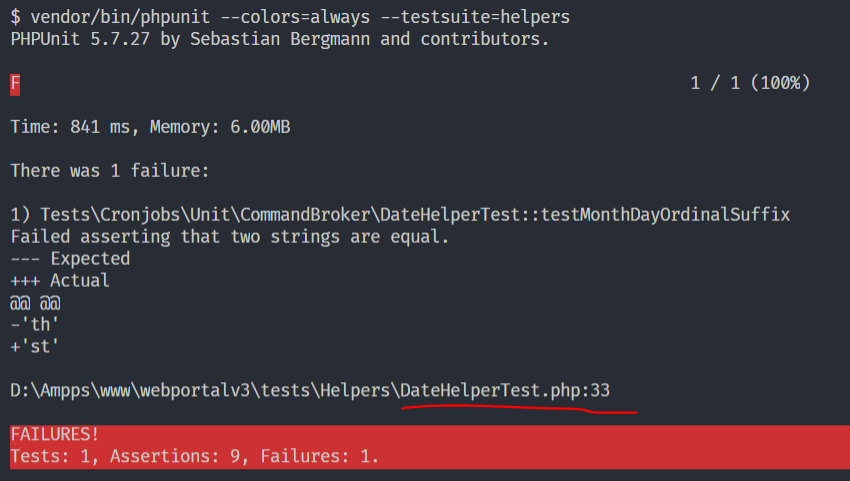# Refactoring Overview

Take a look at the function ordinal_suffix()
function ordinal_suffix($num)
{
$number = abs($num);
$lastChar = substr($num, -1, 1);
switch ($lastChar)
{
case '1' : return ($num == '11') ? 'th' : 'st';
case '2' : return ($num == '12') ? 'th' : 'nd';
case '3' : return ($num == '13') ? 'th' : 'rd';
}
return 'th';
}
Let's see
- function & Param names are vague, because it only works with
$numbelow 100 $numberis uselessswitchcombine withternary operator (?)make logical complexity
# Refactor
- Rename for function & param & variables for more descriptive
- Remove var
$number - Use an associative array a.k.a Map a.k.a Dictionary to remove control flow
switch - Apply early-return pattern
function month_day_ordinal_suffix($month_day)
{
$month_day .= ''; // type casting
$special_days = ['11', '12', '13'];
if (in_array($month_day, $special_days)) {
return 'th';
}
$lastchar_suffix_map = [
'1' => 'st',
'2' => 'nd',
'3' => 'rd',
// others are 'th'
];
$lastchar = substr($month_day, -1, 1);
$found_in_map = isset($lastchar_suffix_map[$lastchar]);
return $found_in_map ? $lastchar_suffix_map[$lastchar] : 'th';
}
# Unit Test
To make sure after refactoring the function still works correctly, we should have tests. It's better if you can write test cases before refactoring.
# Create a new file at /tests/Helpers/DateHelperTest.php
<?php
namespace Tests\Helpers;
use PHPUnit\Framework\TestCase;
// set up the required constant
if (!defined('BASEPATH')) {
define('BASEPATH', __DIR__ . "/../../");
}
// include the specific file to test
require BASEPATH . 'application/helpers/application_helper.php';
class DateHelperTest extends TestCase
{
function testMonthDayOrdinalSuffix()
{
// test cases will place here
}
}
Add test cases to testMonthDayOrdinalSuffix function
function testMonthDayOrdinalSuffix()
{
// last char with 1 cases
$this->assertEquals('st', \month_day_ordinal_suffix(1));
$this->assertEquals('th', \month_day_ordinal_suffix(11));
$this->assertEquals('st', \month_day_ordinal_suffix(21));
$this->assertEquals('st', \month_day_ordinal_suffix(31));
// last char with 2 cases
$this->assertEquals('nd', \month_day_ordinal_suffix(2));
$this->assertEquals('th', \month_day_ordinal_suffix(12));
$this->assertEquals('nd', \month_day_ordinal_suffix(22));
// last char with 3 cases
$this->assertEquals('rd', \month_day_ordinal_suffix(3));
$this->assertEquals('th', \month_day_ordinal_suffix(13));
$this->assertEquals('rd', \month_day_ordinal_suffix(23));
// other cases
$this->assertEquals('th', \month_day_ordinal_suffix(7));
$this->assertEquals('th', \month_day_ordinal_suffix(13));
$this->assertEquals('th', \month_day_ordinal_suffix(30));
}
# Run the test
Add these code to file /phpunit.xml if not exists
<testsuites>
<testsuite name="helpers">
<directory>./tests/Helpers/</directory>
</testsuite>
</testsuites>
Open terminal and run the test
vendor/bin/phpunit --colors=always --testsuite=helpers
# Test result
It will be like this if all test cases pass

And when failing:

Come back to the test case check the issue then make it green.
Good luck!